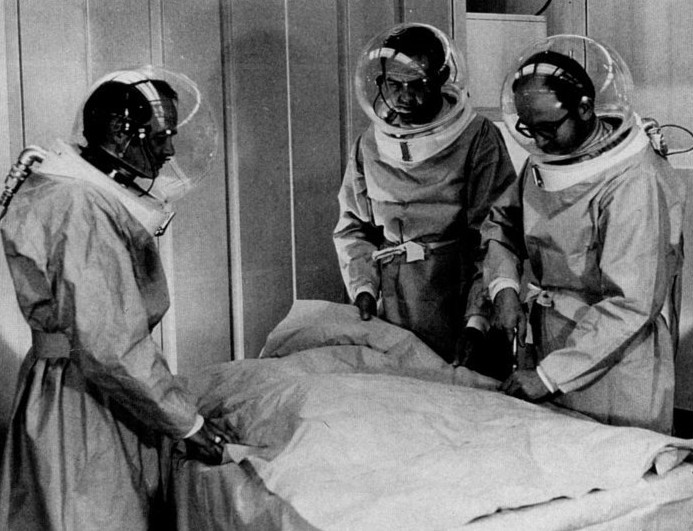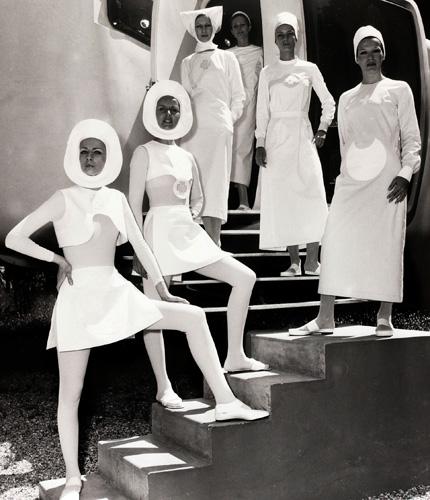Here are 50 ungated pieces of wonderful journalism from 2015, alphabetized by author name, which made me consider something new or reconsider old beliefs or just delighted me. (Some selections are from gated publications that allow a number of free articles per month.) If your excellent work isn’t on the list, that’s more my fault than yours.
- “Who Runs the Streets of New Orleans?” (David Amsden, The New York Times Magazine) As private and public sector missions increasingly overlap, here’s an engaging look at the privatization of some policing in the French Quarter.
- “In the Beginning” (Ross Andersen, Aeon) A bold and epic essay about the elusive search for the origins of the universe.
- Ask Me Anything (Anonymous, Reddit) A 92-year-old German woman who was born into Nazism (and participated in it) sadly absolves herself of all blame while answering questions about that horrible time.
- “It’s Not Climate Change — It’s Everything Change” (Margaret Atwood, Matter) The great storyteller speculates on the disparate paths we might take as the very real threat of climate change draws perilously close.
- “One-Man Rule in Israel’s Hippy Micro-State” (Raffi Berg, BBC Magazine) Achzivland, a micronation that is, yet is not, a part of Israel, has proven too wild to reign in and too small to fail.
- “The Man Who Made Trump Who He Is” (Gwenda Blair, Politico) Grandpa Friedrich Trump was a “whoremaster,” and in retrospect he was the classy one.
- “Rethinking Extinction” (Stewart Brand, Aeon) The Whole Earth Catalog founder thinks the chance of climate-change catastrophe overrated, arguing we should utilize biotech to repopulate dwindling species.
- “Where Would the Kardashians Be Without Kris Jenner?” (Taffy Brodesser-Akner, The New York Times Magazine) The mother of invention gets her due in this excellent profile of the leader of America’s other First Family.
- “Anchorman: The Legend of Don Lemon” (Taffy Brodesser-Akner, GQ) A deeply entertaining look into the perplexing facehole of Jeff Zucker’s most gormless word-sayer and, by extension, the larger cable-news zeitgeist.
- “How Social Media Is Ruining Politics” (Nicholas Carr, Politico) A lament that our shiny new tools have provided provocative trolls far more credibility than a centralized media ever allowed for.
- “Clans of the Cathode” (Tom Carson, The Baffler) One of our best culture critics looks at the meaning of various American sitcom families through the medium’s history.
- “We Need A Modern Origin Story: A Big History” (David Christian, Edge) The Australian academic addresses this question: Can you teach a history course that begins with the emergence of the universe?
- “The Black Family in the Age of Mass Incarceration” (Ta-Nehisi Coates, The Atlantic) The author examines the tragedy of the African-American community being turned into a penal colony, explaining the origins of the catastrophic policy failure.
- “We Are Data: The Future of Machine Intelligence” (Douglas Coupland, Financial Times) The author argues that it’s too late to curb the info-sucking and -generating energy of the Internet.
- “The World’s Biggest Pet Store Has 250,000 Animals” (Ben Crair, Businessweek) The Zoo Zajac, a ginormous German pet shop offering both expected and exotic species, is the Harrods of hamsters and hares.
- “The Koreans Who Televise Themselves Eating Dinner” (Stephen Evans, BBC Magazine) In hyper-wired South Korea, “performance eating” has become a phenomenon, a logical development in a time of democratized media.
- “Perfect Genetic Knowledge” (Dawn Field, Aeon) The essayist thinks about a future in which we’ve achieved “perfect knowledge” of whole-planet genetics.
- “Gary Dahl, Inventor of the Pet Rock, Dies at 78” (Margalit Fox, The New York Times) The great obituarist remembers a marketer who boozily dreamed up a novelty that ever so briefly became a national sensation.
- “A Strangely Funny Russian Genius” (Ian Frazier, The New York Review of Books) Daniil Kharms was a very funny writer, if you appreciate slapstick that ends in a body count.
- “Tomorrow’s Advance Man” (Tad Friend, The New Yorker) Profile of Silicon Valley strongman Marc Andreessen and his milieu, an enchanted land in which adults dream of riding unicorns.
- “Build-a-Brain” (Michael Graziano, Aeon) The neuroscientist’s ambitious thought experiment about machine intelligence is a piece I thought about continuously throughout the year.
- “An Astrobiologist Asks a Sci-fi Novelist How to Survive the Anthropocene” (David Grinspoon, Nautilus) The scientist queries Kim Stanley Robinson about what humans need to do to snake through this dangerous age.
- “Who Owns the Future? How the Prophets of Silicon Valley Took Control” (Yuval Noah Harari, New Statesman) The author of the great book Sapiens argues that technocrats, not bureaucrats, will shape tomorrow.
- Ask Me Anything (Stephen Hawking, Reddit) Among other things, the physicist warns that the real threat of superintelligent machines isn’t malice but relentless competence.
- “Is Tyson Fury Fit to Fight Wladimir Klitschko For the World Heavyweight Title?” (Oliver Holt, Daily Mail) Jaw-dropping profile of the angriest Christian on the planet, written just before he became boxing’s least lovable champion.
- “Don’t Worry, Smart Machines Will Take Us With Them“ (Stephen Hsu, Nautilus) The physicist provides an alternative to the killer-robots narrative, and one that seems far more plausible.
- “Engineering Humans for War” (Annie Jacobsen, The Atlantic) War is inhuman, it’s been said, and the Pentagon wants to make it more so by employing bleeding-edge biology and technology to create super soldiers.
- “The Wrong Head” (Mike Jay, London Review of Books) A look at insanity in 1840s France, which demonstrates that mental illness is often expressed in terms of the era in which it’s experienced.
- “Death Is Optional” (Daniel Kahneman and Noah Yuval Harari, Edge) Two of my favorite big thinkers discuss the road ahead, a highly automated tomorrow in which medicine, even mortality, may not be an egalitarian affair.
- “Inside Amazon: Wrestling Big Ideas in a Bruising Workplace” (Jodi Kantor and David Streitfeld, The New York Times) The deepest exploration yet of a company that’s the envy of the business world and a pretty horrible place to work.
- “Where the Bodies Are Buried,” (Patrick Radden Keefe, The New Yorker) Ceasefires, even treaties, don’t completely conclude wars, as evidenced by this haunting revisitation of the heartbreaking IRA era.
- “Porntopia” (Molly Lambert, Grantland) The annual Adult Video News Awards in Las Vegas, the Oscars of oral, allows the writer to look into a funhouse-mirror reflection of America.
- “The Robots Are Coming” (John Lanchester, London Review of Books) A remarkably lucid explanation of how quickly AI may remake our lives and labor in the coming decades.
- “How the Compact Disc Lost Its Shine” (Dorian Lynskey, Guardian) A smart, sprawling history about the brief dominance of a medium.
- “The Next Mark Zuckerberg Is Not Who You Might Think” (Claire Cain Miller, The New York Times) False narratives can have real-world impact, and the writer explodes one of them–the young tech genius in the hoodie–in this perfect blog post.
- “Meet Venture Capital’s Teenage Analyst” (Christopher Mims, Wall Street Journal) A whip-smart profile of a post-tween powerhouse making her mark in Silicon Valley’s precocious ecosystem.
- “Last Girl in Larchmont” (Emily Nussbaum, The New Yorker) The great TV critic provides a postmortem of Joan Rivers and her singular (and sometimes disquieting) brand of feminism.
- “President Obama & Marilynne Robinson: A Conversation, Part 1 & Part 2” (Barack Obama and Marilynne Robinson, New York Review of Books) Two monumental Americans discuss the state of the novel and the state of the union.
- Ask Me Anything (Elizabeth Parrish, Reddit) The CEO of BioViva announces she’s patient zero for the company’s experimental age-reversing gene therapies. Strangest thing I read all year.
- “Why Alien Life Will Be Robotic” (Sir Martin Rees, Nautilus) The astronomer argues that ETs in our inhospitable universe have likely already transitioned into conscious machines.
- Ask Me Anything (Anders Sandberg, Reddit) Heady conversation about existential risks, Transhumanism, economics, space travel and future technologies conducted by the Oxford researcher.
- “Tomorrowland: How Silicon Valley Shapes Our Future” (Thomas Schulz, Spiegel) The reporter examines how American technologists want to remake our world and weighs the consequences of that ambition.
- “At Comic-Con, Bring Out Your Fantasy and Fuel the Culture“ (A.O. Scott, The New York Times) The writer sums up lots about contemporary society after spending a few days gawking at X-Men, Yodas and zombies.
- “Lunch with the FT: Mariana Mazzucato” (John Thornhill, Financial Times) The economist makes a quick meal of Silicon Valley mythologizing.
- “Climb In, Tune In: A Renaissance for Sensory Deprivation Tanks” (Julie Turkewitz, The New York Times) A delightfully written account of the resurgent interest in John Lilly’s altered-states contraptions.
- “Alien Rights” (Lizzie Wade, Aeon) Manifest Destiny will, sooner or later, became a space odyssey. What ethics should govern exploration of the final frontier?
- “Climate Change Means One World’s Death and Another’s Birth“ (Lizzie Wade, Wired) A study of how life on Earth will proceed if Homo sapiens are obliterated by climate change.
- “A Rare, Personal Look at Oliver Sacks’s Early Career” (Lawrence Weschler, Vanity Fair) The neuroscientist and writer, whose beginnings were incredibly complex, is sketched very candidly by his longtime friend.
- “Peeling Back the Layers of a Born Salesman’s Life” (Michael Wilson, The New York Times) The paper’s gifted crime writer pens a posthumous profile of a protean con man, a Zelig on the make who crossed paths with Abbie Hoffman, Otto Preminger and Annie Leibovitz, among others.
- “The Pop Star and the Prophet” (Sam York, BBC Magazine) Philosopher Jacques Attali, who predicted, back in the ’70s, the downfall of the music business, tells the writer he now foresees similar turbulence for manufacturing.



